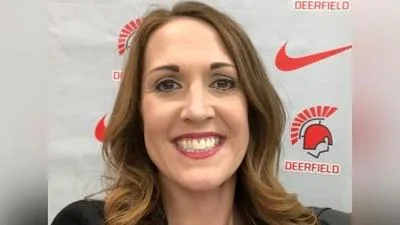Mark Ingrum, executive director at Riverside Foundation | Linkedin
Mark Ingrum, executive director at Riverside Foundation | Linkedin
This appropriation represents state-level funding authorized by lawmakers, reflecting what was approved in the budget, not necessarily disbursed. The funds cover only State of Illinois support and exclude federal, local, or other public sources.
Founded in 1968, Riverside Foundation states that its mission is: “Riverside Foundation will provide quality services and support to adults with intellectual and developmental disabilities, ensuring opportunities for individual choice and with a commitment to providing these supports in a positive, caring environment.”
You can learn more about the organization at its website.
In its most recent IRS Form 990 filing filing for tax year 2024, the organization reported $9,186,640 in total revenue.
The nonprofit listed $358,997 in contributions overall. It also reported $29,673 in non-cash contributions, such as donated goods or services, and $358,997 categorized under other contributions, which may include restricted donations, pledges, or bequests.
At the beginning of 2024, Riverside Foundation had $3,515,600 in assets. By the end of 2024, that figure had changed to $4,868,680, indicating a significant 38.5% growth in overall holdings.
However, a Chicago City Wire analysis found that IRS filings frequently contain discrepancies when compared with publicly disclosed government grant reports and budgets.
Riverside Foundation is one of hundreds of nonprofits across Illinois that receive substantial support from state taxpayers while also fundraising privately.
In 2025, Illinois lawmakers introduced House Bill 1266, also known as the Department of Government Efficiency (DOGE) Act. The proposal would create a new oversight body within the Office of the Auditor General tasked with identifying cost-saving measures, reviewing agency performance, and advising on audit priorities. If passed, DOGE could bring additional scrutiny and performance evaluation to taxpayer-funded organizations.
According to ProPublica, Illinois has more than 78,000 active tax-exempt organizations, including nearly 60,000 classified as charitable nonprofits. In their most recent IRS filings, these groups reported a combined revenue exceeding $156 billion.
| Term | Name | Title |
|---|---|---|
| 2024-2024 | Anne Hardner | Director |
| 2024-2024 | Antonia Giuliana | Director |
| 2024-2024 | Beth Ann Fell | Director |
| 2024-2024 | Bettye D Traylor | Secretary |
| 2024-2024 | Charles Domanico | Director |
| 2024-2024 | Edward Schwalbach | Nurse |
| 2024-2024 | Elizabeth Brandt | Director |
| 2024-2024 | Kelsey Schmitt | Director |
| 2024-2024 | Kori Larson | Administrator |
| 2024-2024 | Lee Fell | Director |
| 2024-2024 | Mark Ingrum | Executive Director |
| 2024-2024 | Ob Soonthornsima | Treasurer |
| 2024-2024 | Peggy Gaier | President |
| 2024-2024 | Peter Harper | Director |
| 2024-2024 | Ricardo Ballagan | Nurse |
| 2024-2024 | Tarik Gajevski | Director |






 Alerts Sign-up
Alerts Sign-up